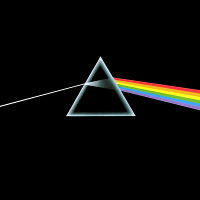You have learned a great many things in your life. What portion of those actually serve a constructive purpose?
Being hit just feels terrible. It’s like being bullied but you can’t stop it because you’ve been taught that authority is always right. That would be a non-constructive consciously learned thing. How about baking a cake? Useful or non-useful?
Very useful, food and activity. Baking aromas are calming too. If you reflect over all the things you have consciously learned in your life, what percentage would you say has been useful? For myself I would say maybe 25%, other thoughts?
If someone comes at you brandishing a knife, offer him an apple to cut with that knife and then to eat. That can buy you enough time to run away, and it may be the thing that makes him choose to completely ignore you. Whereas getting angry at him is what he’s expecting you to do, and will lead him to shed the blood he intended to.
Well, the point of my question I felt was important… It may not be fair or accurate of me to say, but I wager that the bigger portion of things you have consciously learned are not useful or helpful or even vital to your base line survival. If you could reduce what you know to only those things necessary for functionally getting by in your life, I suspect your life would be rather simple. What do you think? And down steam from your mental faculties is your autobiographical memory. You have memory functioning at all the other levels as well, muscle memory, memory induced by chronic hormonal reactions. There is a broad range of memory, but on the conscious “higher order” level you mostly just have your autobiographical memory.
Your autobiographical memory, and the consciously learned skills and knowledge that are nested in it, form your outer or surface mind. These hold the constructs you use to build the world as you understand it, the inner mind functioning behind the scenes.
My story? Yes. Part of your story is having gotten a degree from a university. That is not involved in my story though, and your stories may have either element or something different than those.
Can you remember a consciously learned skill without telling yourself a story? Ever wonder who is listening to that story?
I can’t recall anything autobiographical without telling myself a story. The inner mind is the listener. This is the priming effect that scientists are researching, and it’s the inner mind that can trigger the associations necessary to reconstruct any of your memories. Things beginning to look a little strange yet?
I’ve noticed that memories are stronger when they have an emotional charge. When that leaves it can be hard to remember. It’s like your mind is a torus of information flow. Emotion is a natural response to processes going on in the mind. Feeling is clear emotional perception. Most of what we consciously think of as emotions are really reactions to habitual judgments we make.
So the same memories seem to recur again and again? Indeed. This was especially important for our ancestors who needed a regular overlay of the experience they have of what could possibly happen in their environment.
Memories are like wormholes in cosmic theory. We can return to the “past” by going through them, or is that just habit? No, it’s true, but it’s not so much have to, as have the option to, and there are processes that go on under our conscious awareness that “update” our memories, patch them so they reflect what we are experiencing and feeling more recently.
Maybe even our past lives have those recurring memories? I wish I could tap into mine. Past life memory could be argued to be the same as genetic inheritance, aspects of natural predisposition to a particular temperament say. Some people are more naturally warm hearted than others.
Your thoughts are welcome. Be well friends.
Travis Saunders
Dragon Intuitive
~science,mysticism,spirituality~

